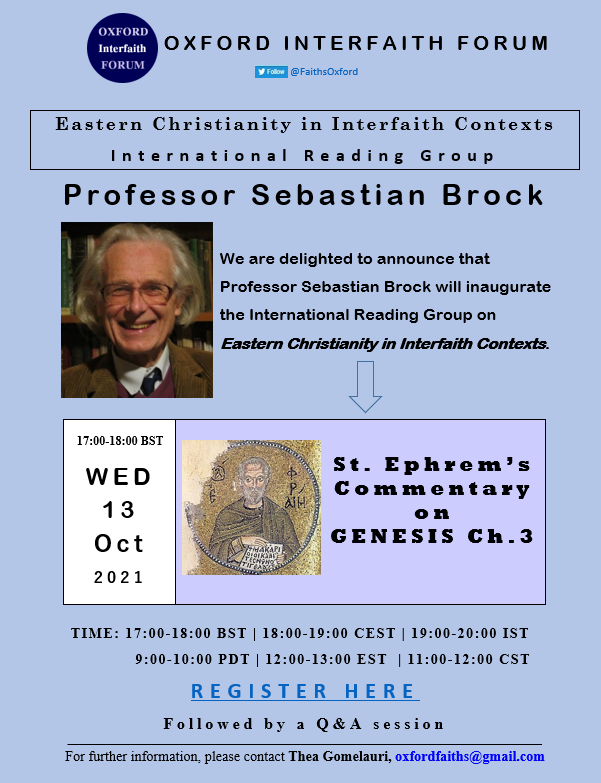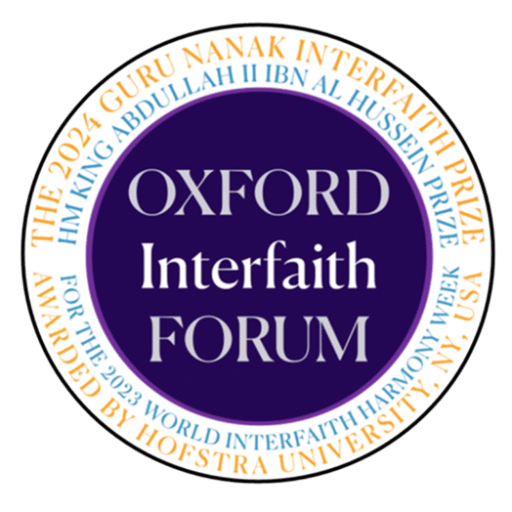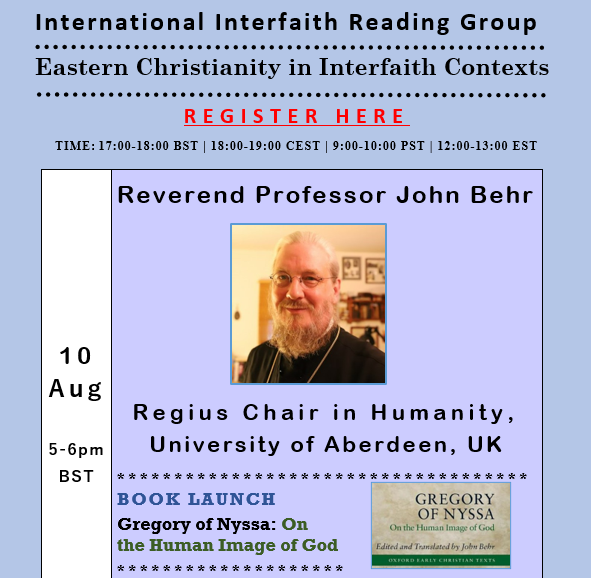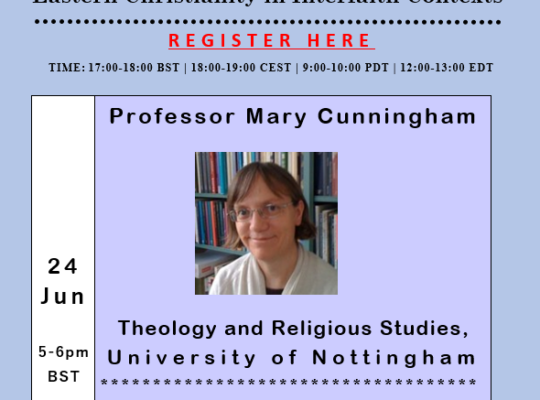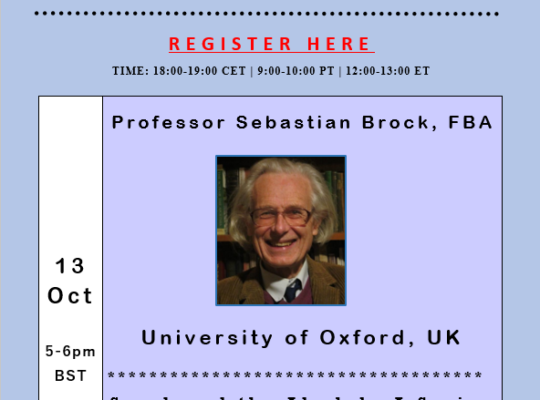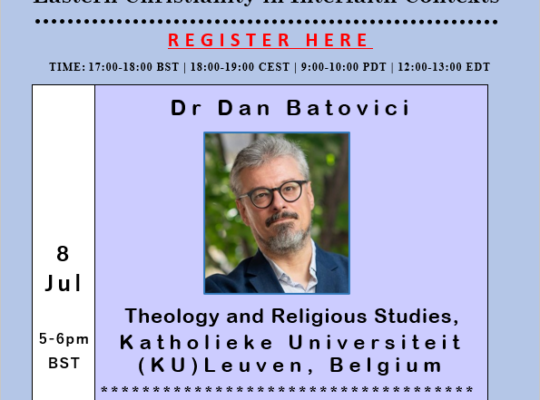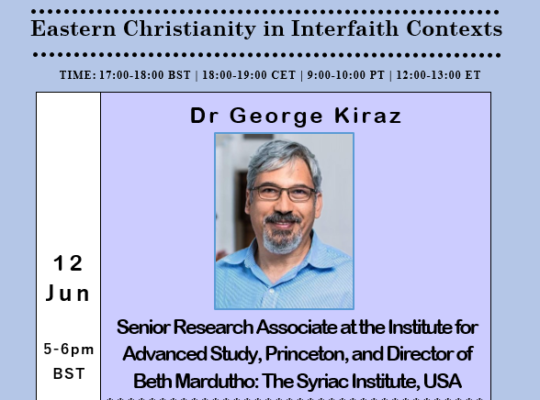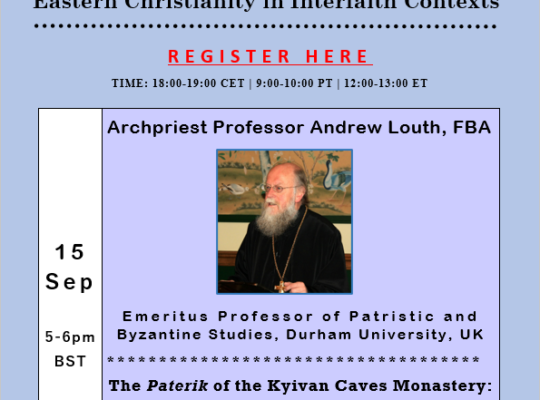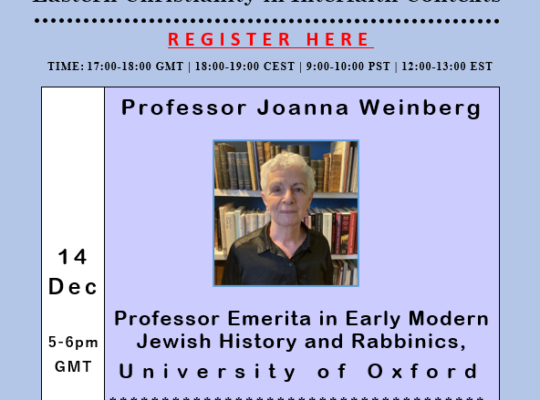10 August, 2023
We are deeply honoured to welcome Reverend Professor John Behr, Regius Chair in Humanity at University of Aberdeen, UK, to lead a session of the International Interfaith Reading Group on Eastern Christianity in Interfaith Contexts.
Here are the details of this fascinating session.
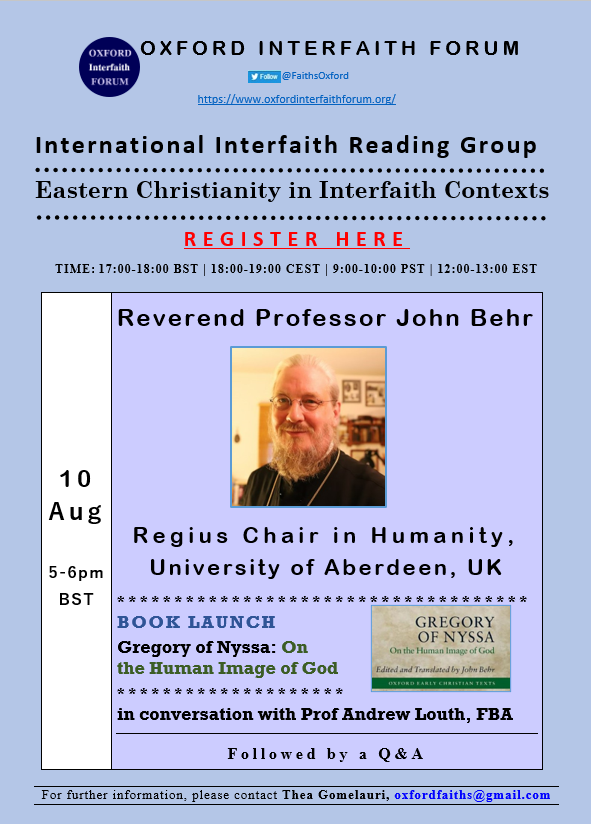
Title: GREGORY OF NYSSA: On the Human Image of God
Abstract: This book presents the first modern critical edition of the work of Gregory of Nyssa, On the Human Image of God (formerly known as On the Making of Man, De hominis opificio) and the first English translation since the nineteenth century. This treatise is one of the most important of Gregory’s texts. Paralleling the structure of Plato’s Timaeus, Gregory’s work begins by offering two analyses of the human being. The first presents the human being as the culmination of the ascent made by nature through the various levels of life, and as made, body and soul, in the image of God. The second considers why this is not immediately apparent, the need for time to be able to grow, individually and collectively, to this status, as the body of Christ, the image of God, and the role of sexuality within this growth. The third part of the work brings both analyses together, to see the same movement in the life-span of each person. The extensive introduction provided in this volume examines the philosophical and theological background of Gregory’s text, beginning with Anaxagoras, Plato (the Timaeus), Philo, and Origen, and also compares aspects of Gregory’s work with that of Irenaeus of Lyons and Maximos the Confessor.
Speaker: Reverend Professor John Behr, Regius Chair In Humanity at University of Aberdeen, UK.
Speaker’s biography: Reverend Professor John Behr, Regius Professor of Humanity at the University of Aberdeen, previously taught at St Vladimir’s Seminary, where he served as Dean from 2007-17; he is also the Metropolitan Kallistos Chair of Orthodox Theology at the Vrije Universiteit of Amsterdam and the Amsterdam Center for Orthodox Theology.
Fr John hails from England, though his family background is Russian and German – and clerical on both sides. From the Russian side, his great-grandfather was sent to London by Metropolian Evlogy to serve there as a priest in 1926; his father was also a priest, ordained by Metropolitan Anthony (Bloom), as are his brother (at St Paul’s Monastery on Mt Athos) and his brother-in-law (Sts Cyril and Methodius, Terryville, CT). His maternal grandparents met at Karl Barth’s graduate seminar in Basel, and served in the Lutheran Church in Germany, where his grandfather was a Lutheran pastor.
After completing his first degree in Philosophy in London in 1987, Fr. John spent a year studying in Greece. He finished an M.Phil. in Eastern Christian Studies at Oxford University, under Bishop Kallistos (Ware), who subsequently supervised his doctoral work, which was examined by Fr. Andrew Louth and Rowan Williams, the former Archbishop of Canterbury. While working on his doctorate, he was invited to be a Visiting Lecturer at St Vladimir’s Seminary in 1993, where he has been a permanent faculty member since 1995, tenured in 2000, and ordained in 2001. Before becoming Dean in 2007, he served as the editor of St Vladimir’s Theological Quarterly, and he still edits the Popular Patristics Series for SVS Press.
His doctoral work was on issues of asceticism and anthropology, focusing on St Irenaeus of Lyons and Clement of Alexandria, and was published by Oxford University Press (2000). After spending almost a decade in the second century, Fr John began the publication of a series on the Formation of Christian Theology (The Way to Nicaea, SVS Press 2001, and The Nicene Faith, SVS Press 2003). Synthesizing these studies, is the book The Mystery of Christ: Life in Death (SVS Press, 2003). In preparation for further volumes of his Formation series, Fr John edited and translated the fragments of Diodore of Tarsus and Theodore of Mopsuestia, setting them in their historical and theological context (OUP 2011). More recently Fr John published a more poetic and meditative work entitled Becoming Human: Theological Anthropology in Word and Image (SVS Press, 2013) and a full study of St Irenaeus: St Irenaeus of Lyons: Identifying Christianity (OUP, 2013). Most recently he has completed a new critical edition and translation of Origen’s On First Principles, together with an extensive introduction, for OUP (2017), and John the Theologian and His Paschal Gospel: A Prologue to Theology (OUP 2019). He is currently working on a new edition and translation of the works of Irenaeus.
Chair: Professor Sebastian Brock FBA, University of Oxford, UK
Date: 10 August, 2023
Time: 17:00-18:00 BST | 9:00-10:00 PDT | 12:00-13:00 EDT
Venue: Online
After registering, you will receive a Zoom email containing information about joining the meeting. If you do not see the Zoom email in your inbox, please, check your spam folder.
If you would like to join the Eastern Christianity in Interfaith Contexts Reading Group, please sign up here.
Related Sessions
- The Peshitta and the Making of the Antioch Bible
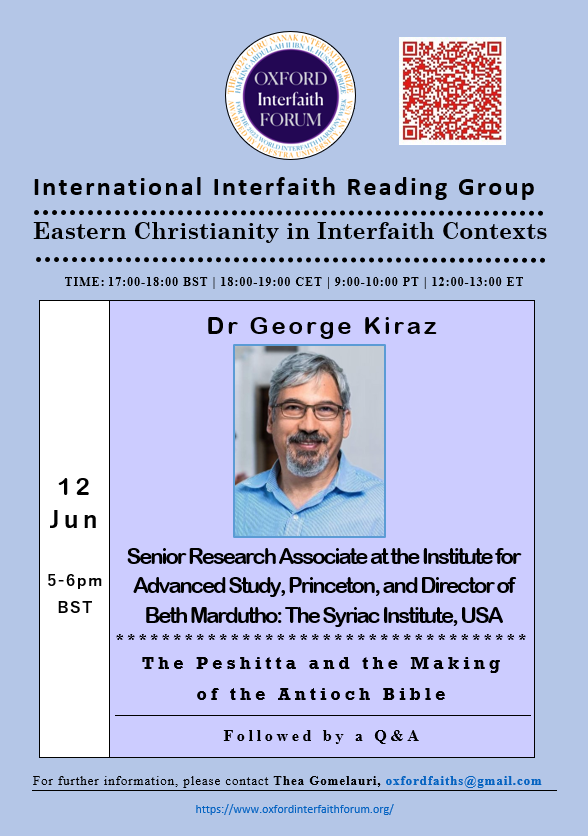
- Narsai’s Memra 49, on Adam and Eve: O Instructive Fault!
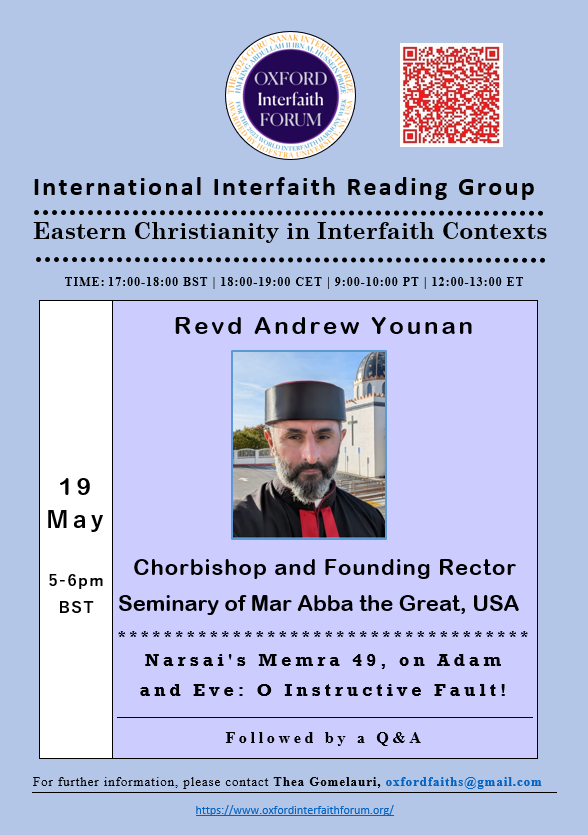
- Basil of Caesarea and Gregory of Nazianzus on the Problem with the Devil
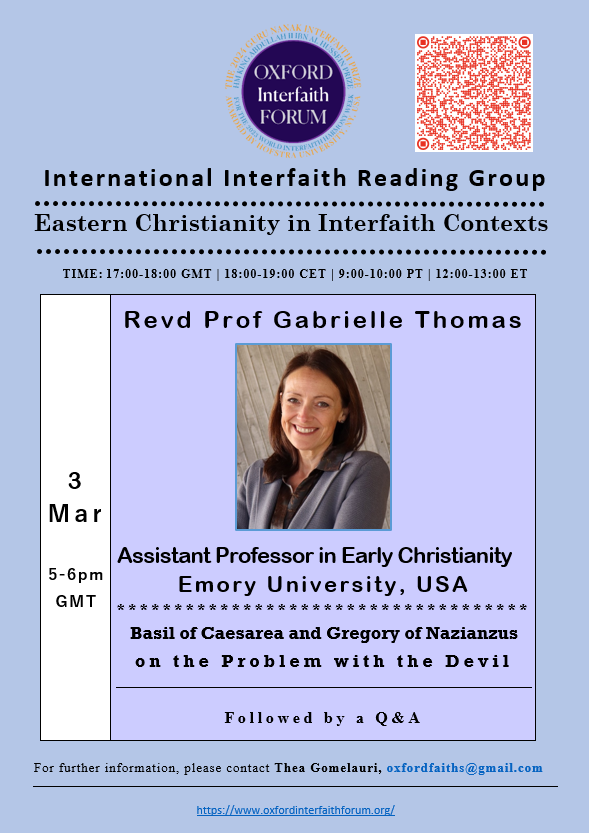
- Byzantine Aristocrat, Monk, Mystic and Dissident: Symeon the New Theologian (949-1022)
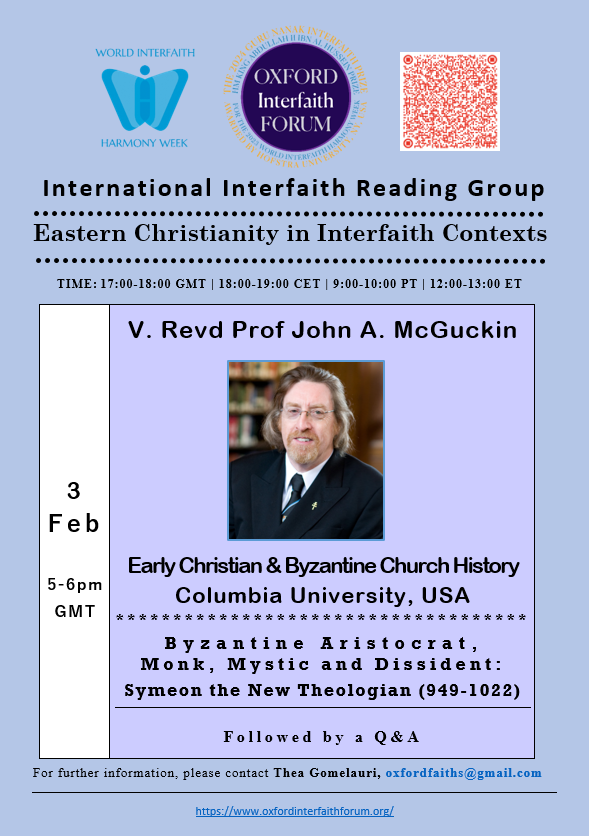
- Heavenly Hours: Creation and Time in the Syriac Testament of Adam
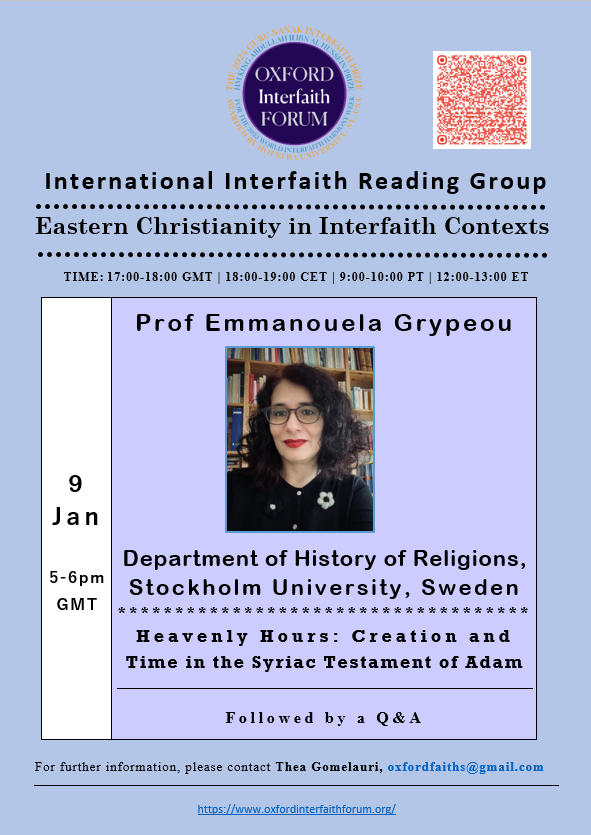
- The Monastic Homilies of Isaac of Antioch
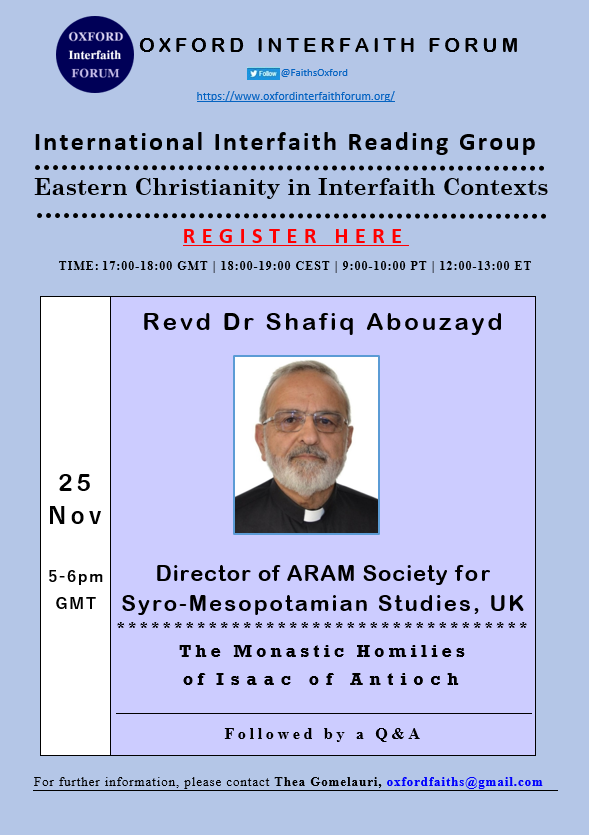
- Christian Trees
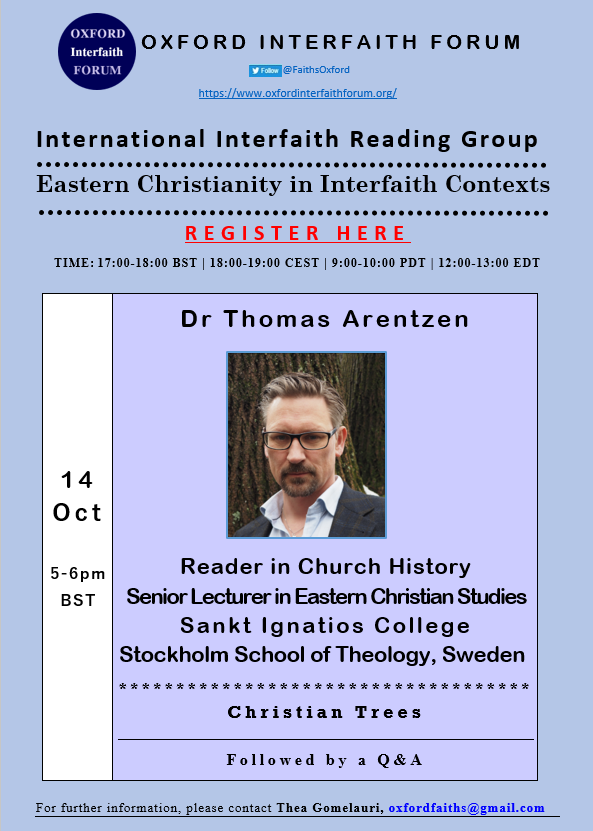
- Dialogue and Fire in a Fragmentary Syriac Martyrdom Narrative
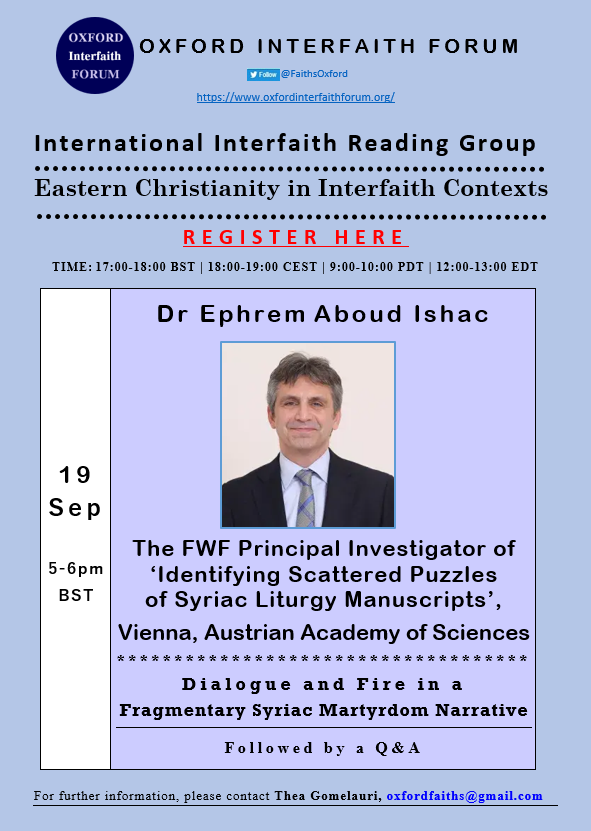
- The Origins of the First Anti-Jewish Good Friday Hymns
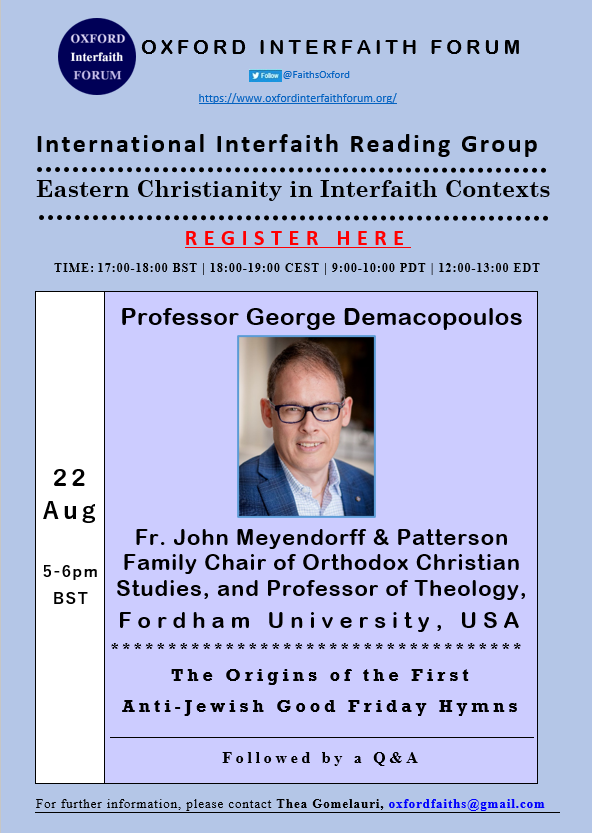
- Finding a Home: The West Syriac Context of the Clementine Epistles on Chastity
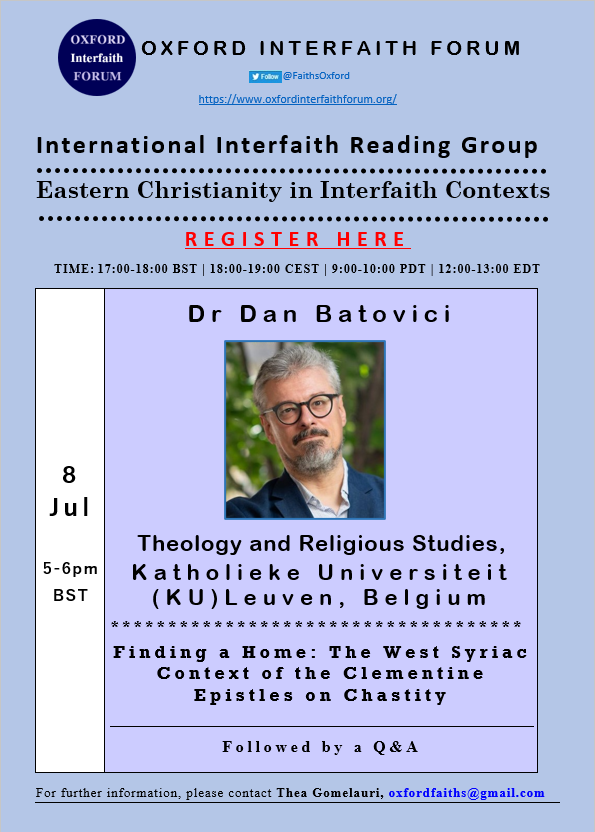
- Who was Mary, the Blessed Virgin and Mother of God? A Byzantine hagiographical narrative by the ninth-century Monk Epiphanios
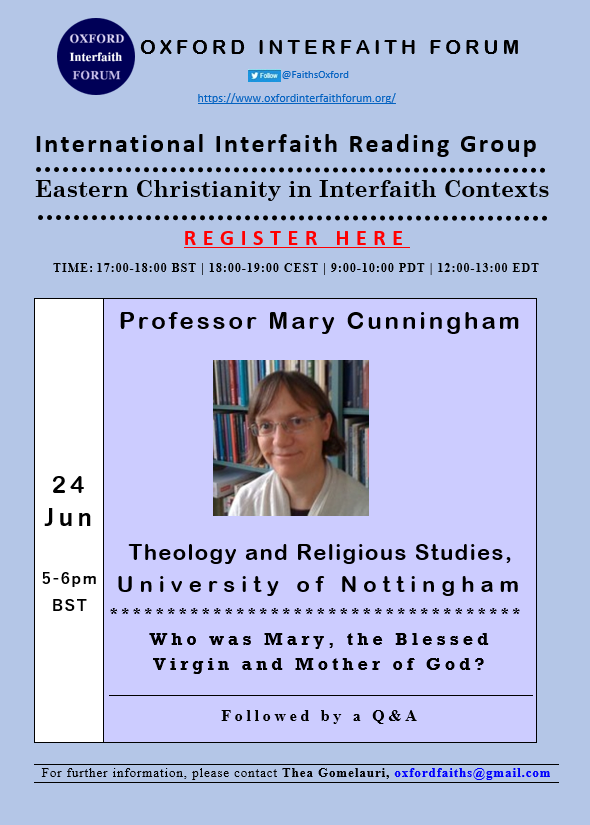
- Nikos Kazantzakis and Orthodox Christianity
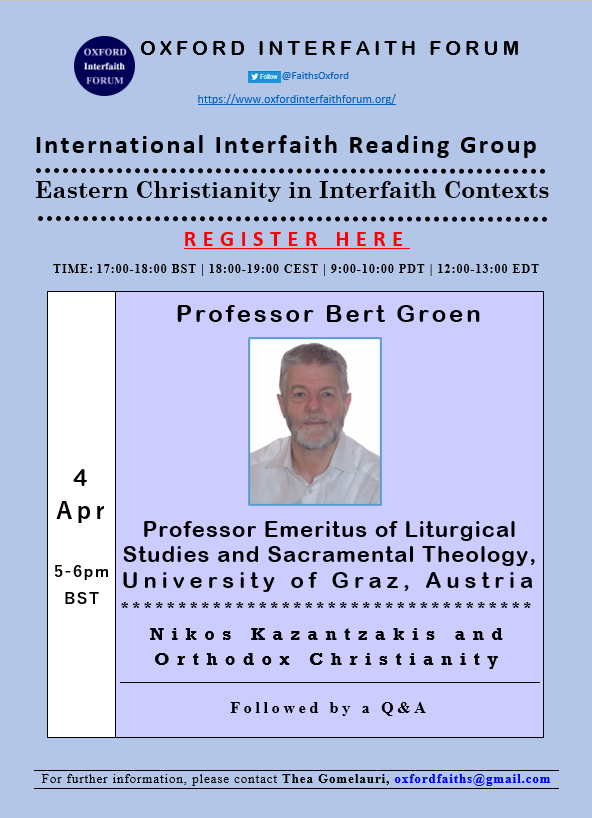
- The Miracle of Pilgrimage: A Coptic Journey to the Holy Land During the Ottoman Period
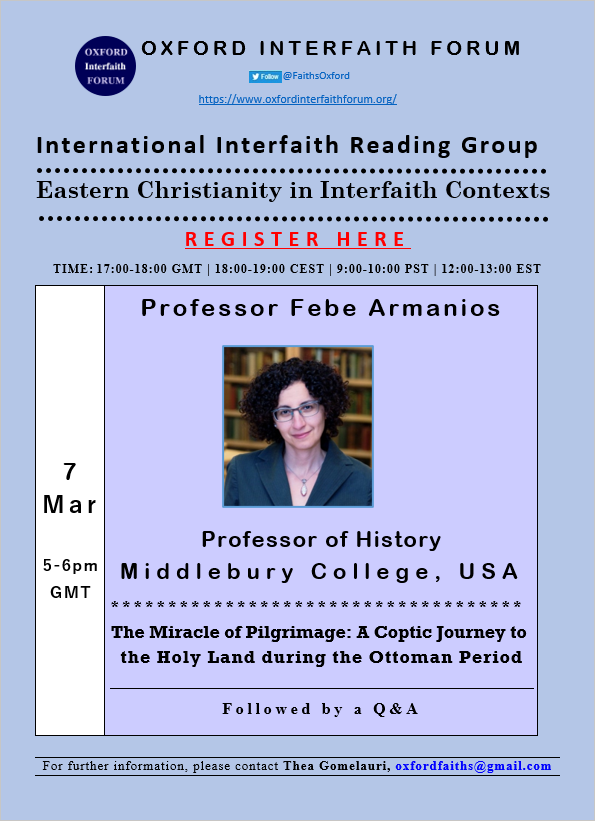
- Setting the Stage: The Rose of Performance in Studying Late Ancient Hymnody
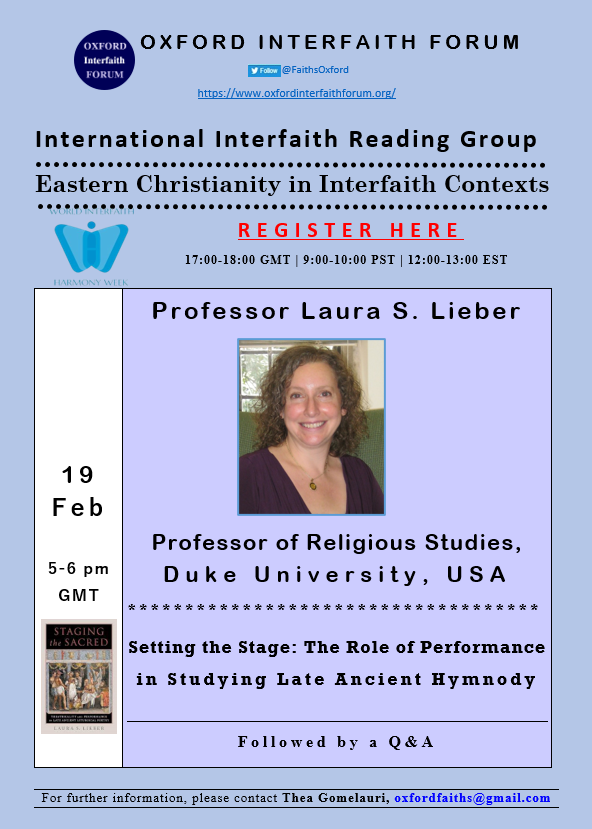
- Ephrem the Syrian and a New Beginning in Syriac Poetry
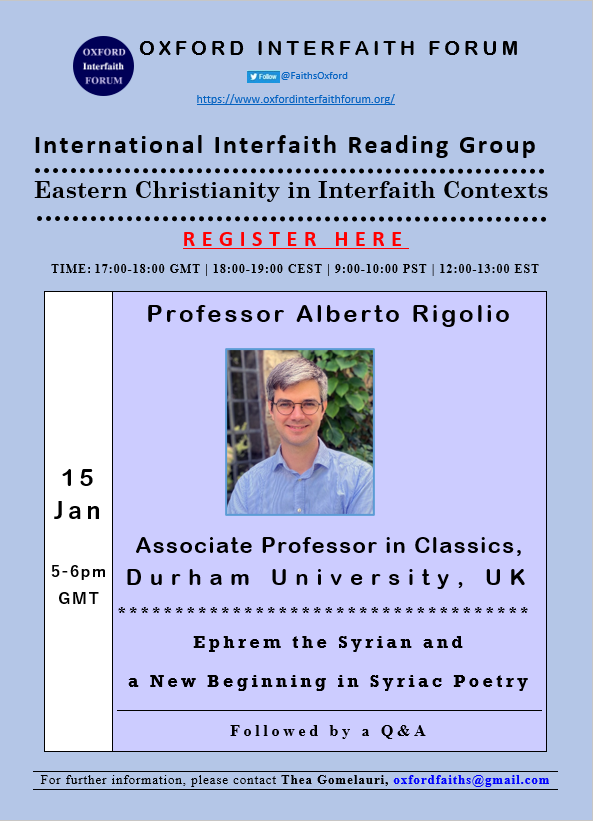
- A Jew Reads the Gospels in Syriac: Azariah de Rossi’s Critique of the Vulgate (1577)
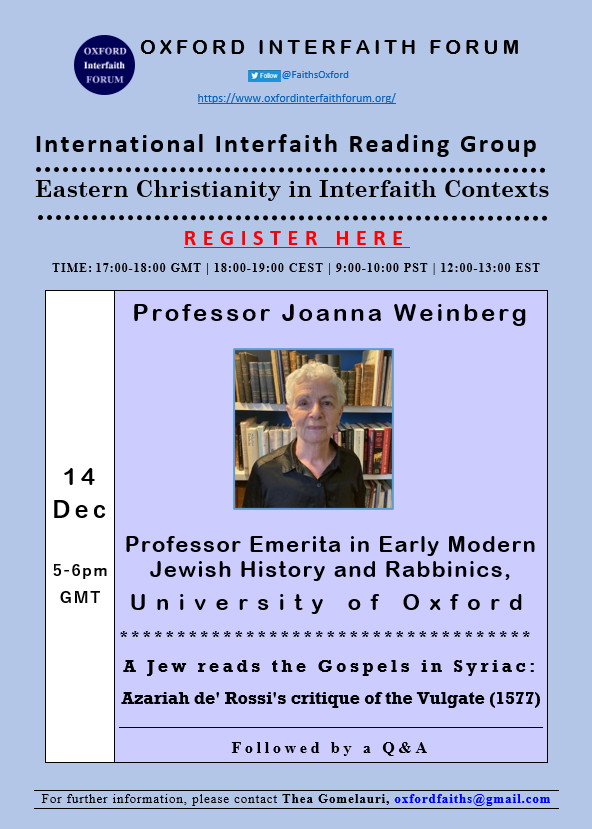
- The Manuscript Project at the Coptic Monastery of St Paul the Hermit at the Red Sea, Egypt
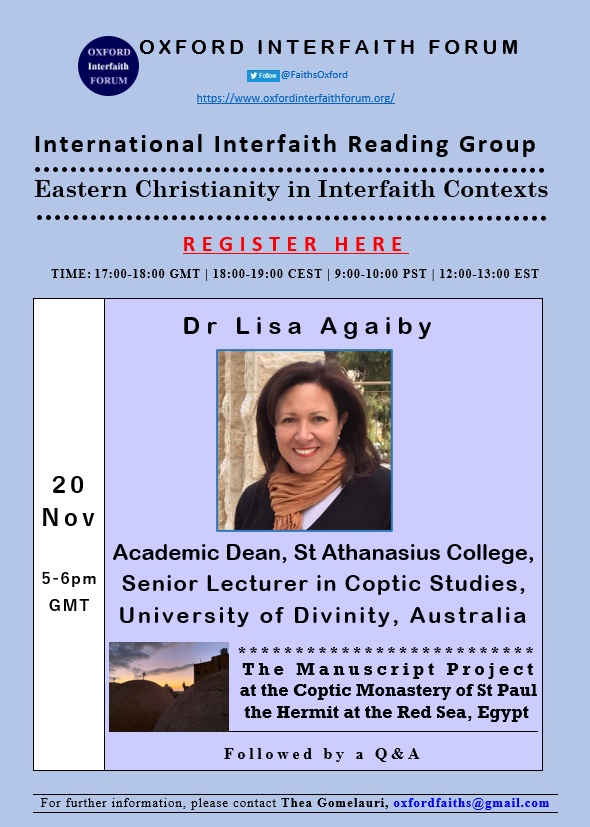
- Mary’s Ordeal: A Syriac Narrative Poem on Many and Joseph
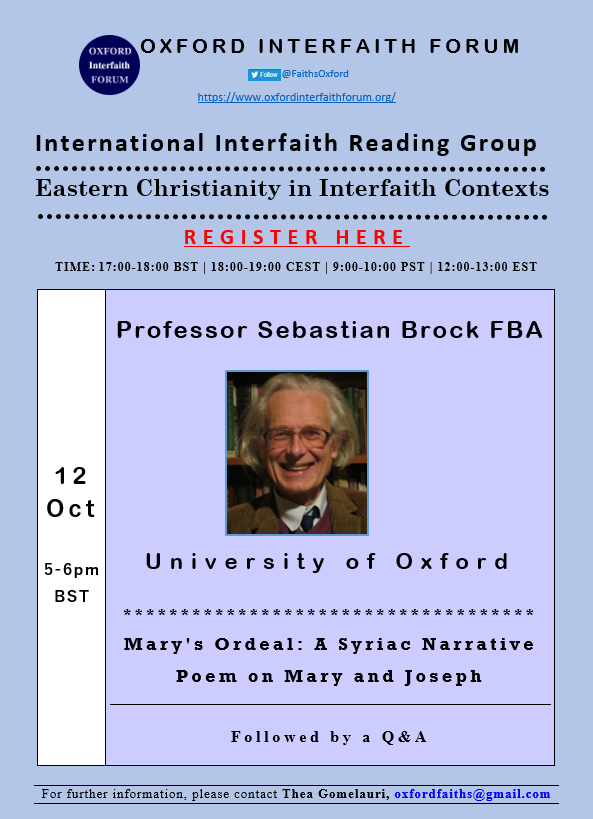
- Resurrection of the Human Body according to John of Dara’s Mimro I:4
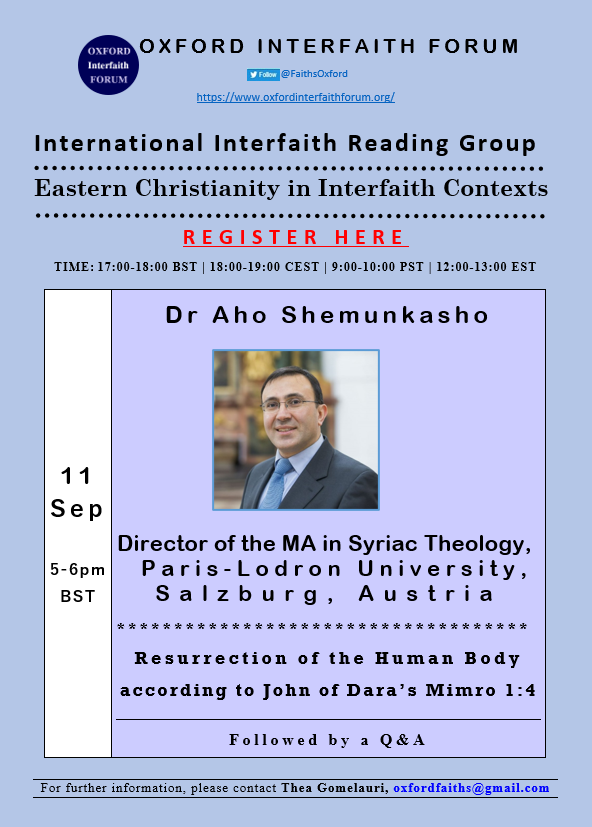
- Gregory of Nyssa: On the Human Image of God

- ‘Conception by ear’ and Redemption of the Human Sensorium in Ephrem’s Thirty-fifth Madrasha on the Church
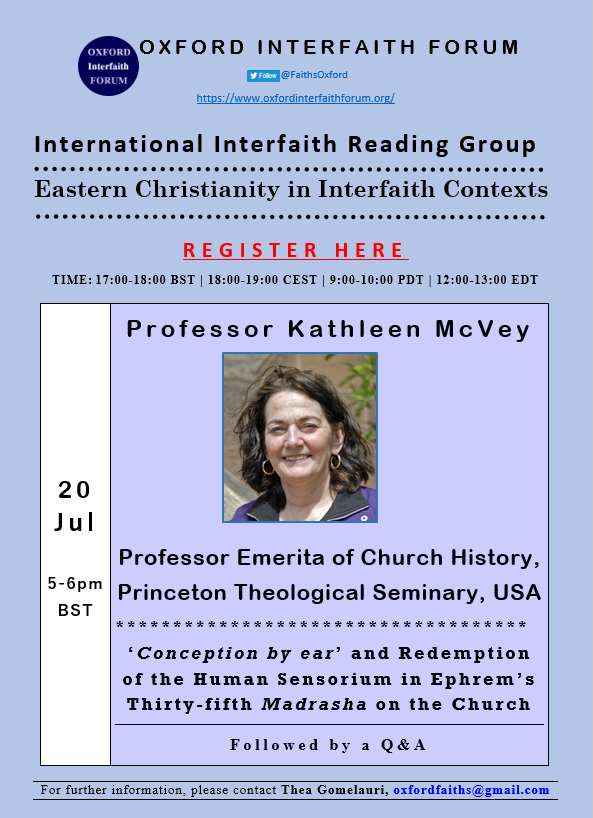
- From Edessa to South Arabia and Back: The Syriac Story of Bishop Paul and Priest John and Models of Sanctity in the Medieval Middle East
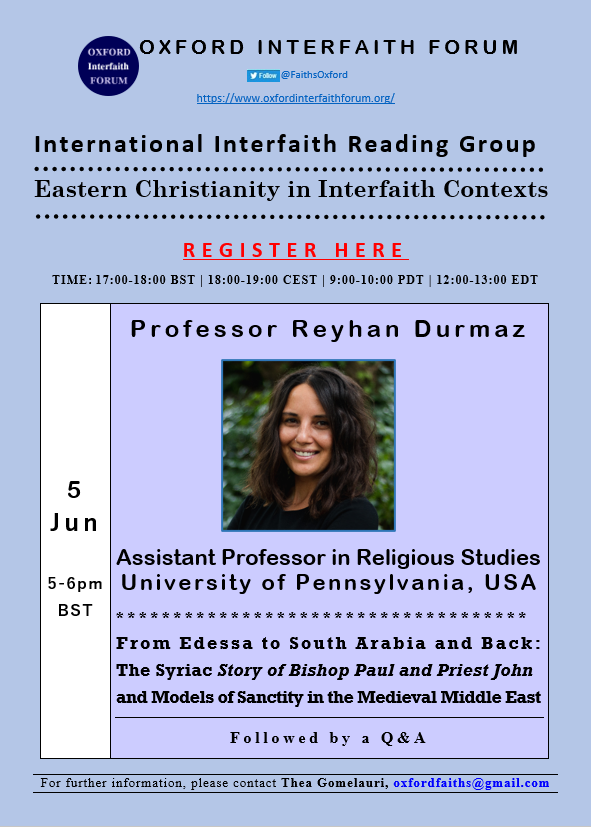
- Wrestling with Calculating-Thoughts: Mental Training according to Evagrius of Pontus
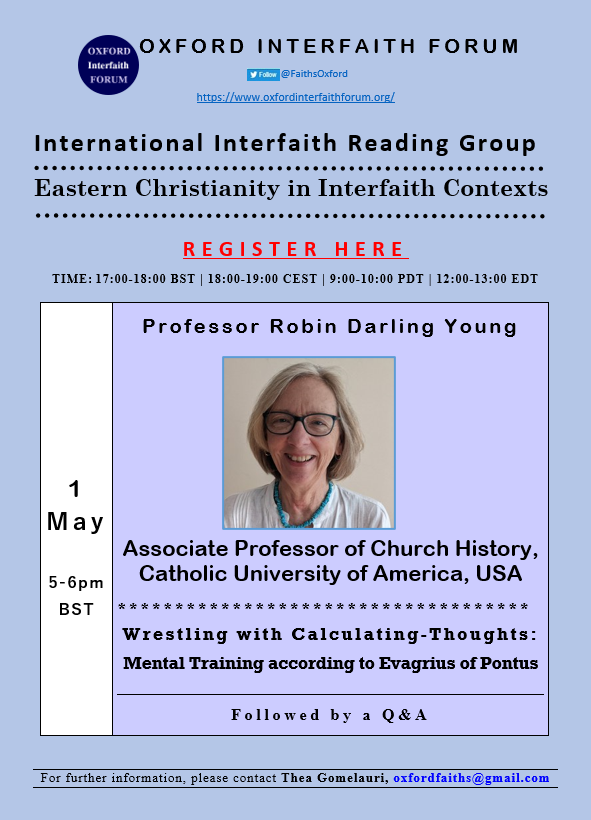
- Returning the Ticket: God and Evil in the Brothers Karamazov
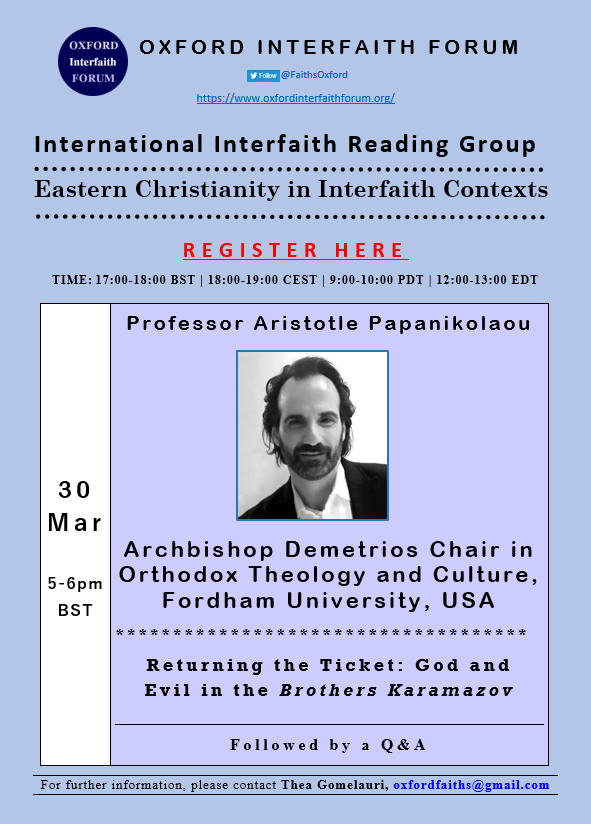
- Ecumenical Patriarch Athenagoras: an Orthodox Dialogue with Islam
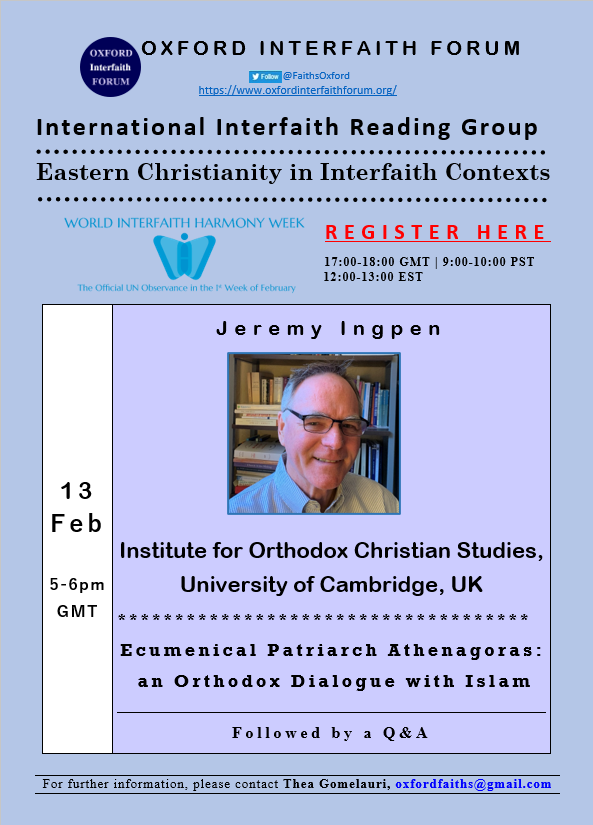
- Matta el-Meskin/Matthew the Poor: a ‘Contemporary Desert Father’ on Christian Unity
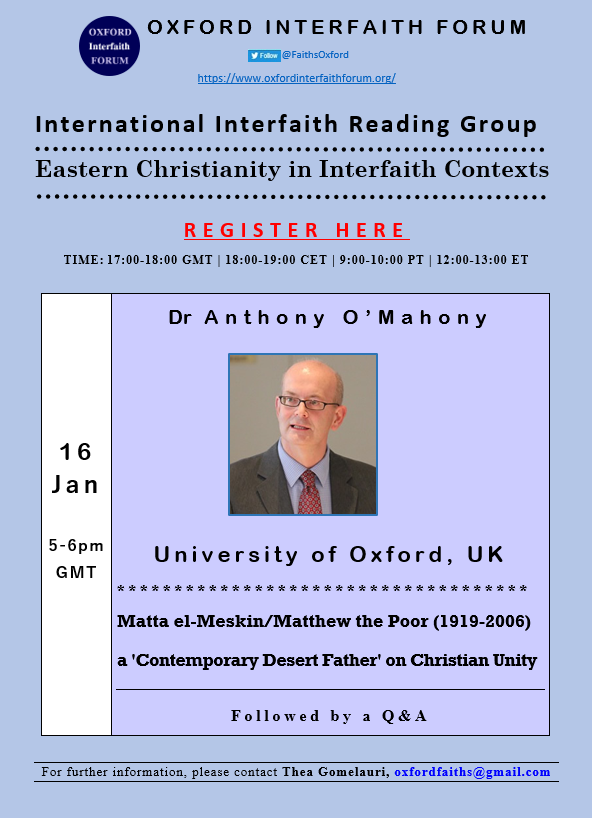
- Signs of Miraculousness: The Inimitability of Jacob of Serugh’s Teaching
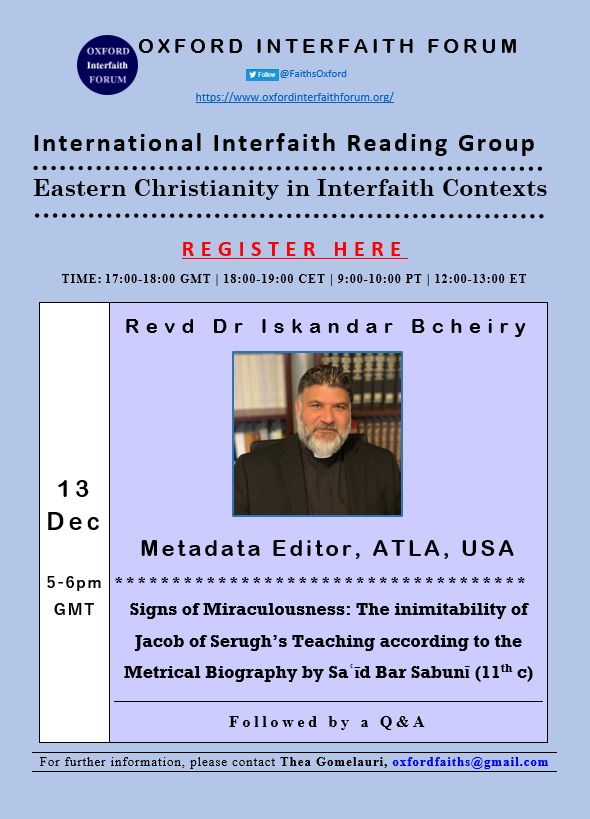
- Epistolary Style in Coptic Letters from the Late Third Century to the Early Fifth Century
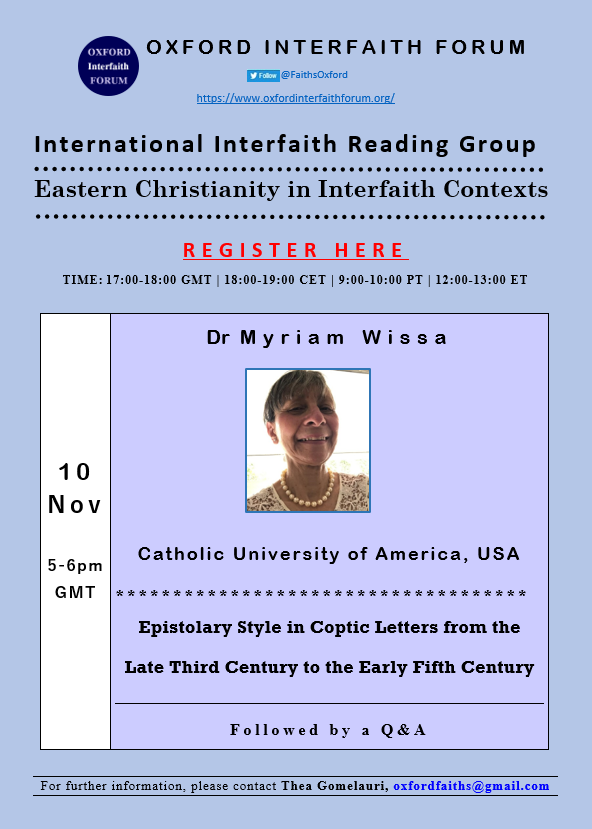
- Sarah and the Akedah: a Syriac Narrative Poem on Genesis 22
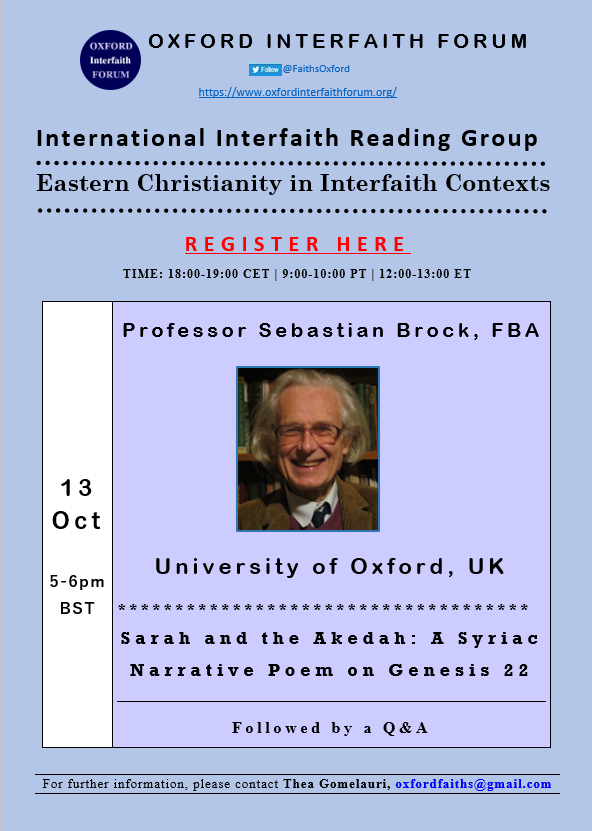
- The Paterik of the Kyivan Caves Monastery: Monk Polikarp in Discourse 14
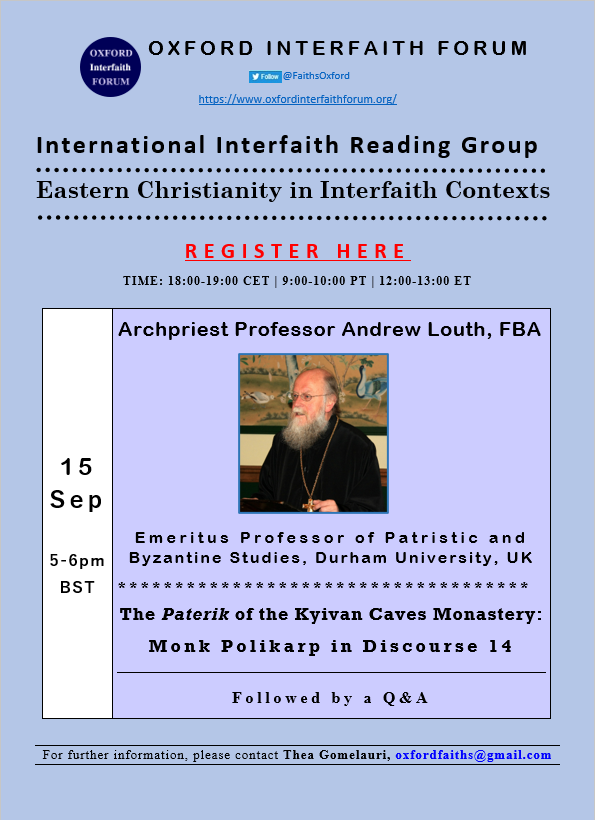
- Jacob of Sarug on the Canaanite Woman (Mt 15:21-28, Mk 7:24-30): Biblical Storytelling and Models of Faith
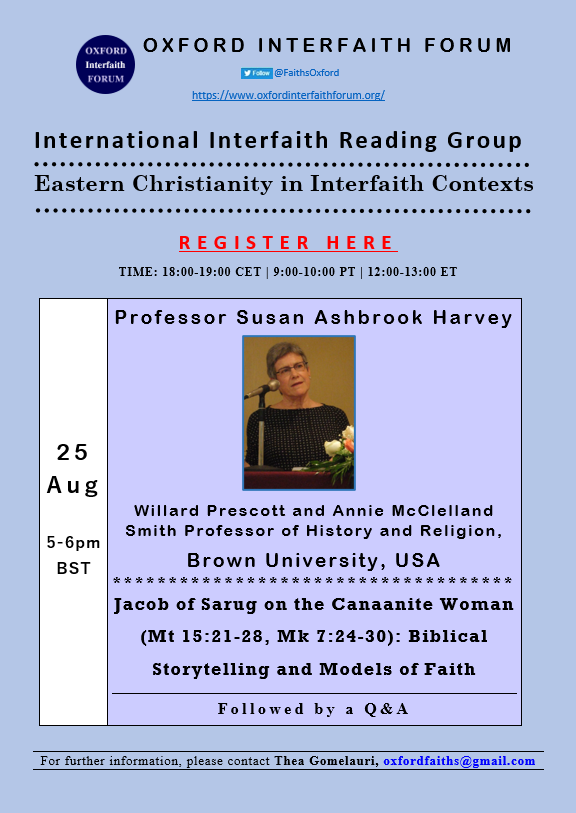
- Commemorating the saints at Turfan: Mart Shir and Mar Barshabba
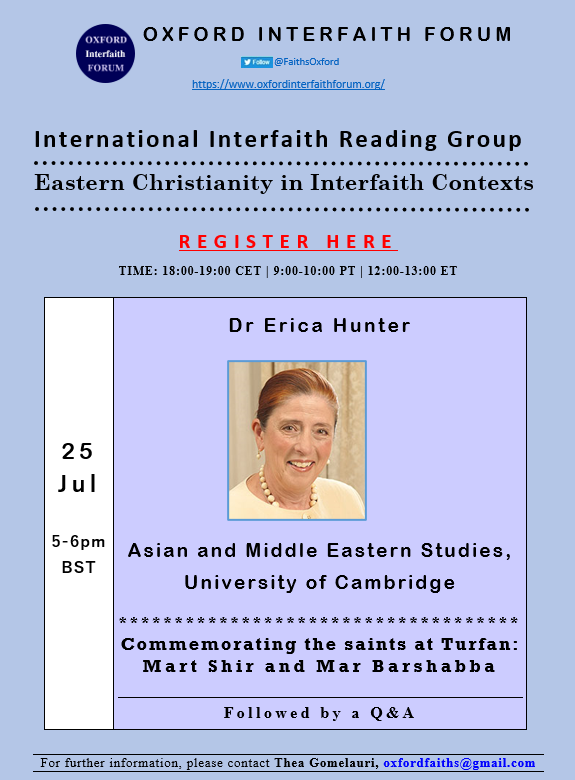
- The Opening Prayers of Saint Gregory of Narek’s Book of Lamentations
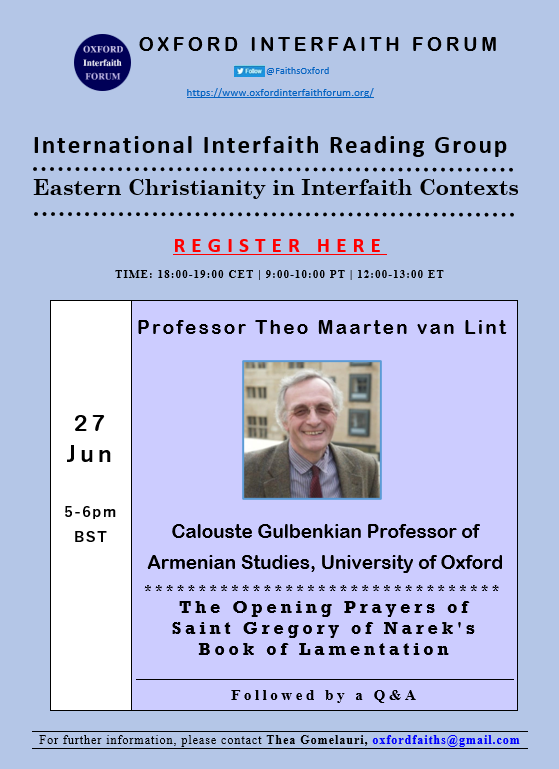
- Alexander Schmemann on Theotokos vis-à-vis Kali a Hindu Mother Goddess
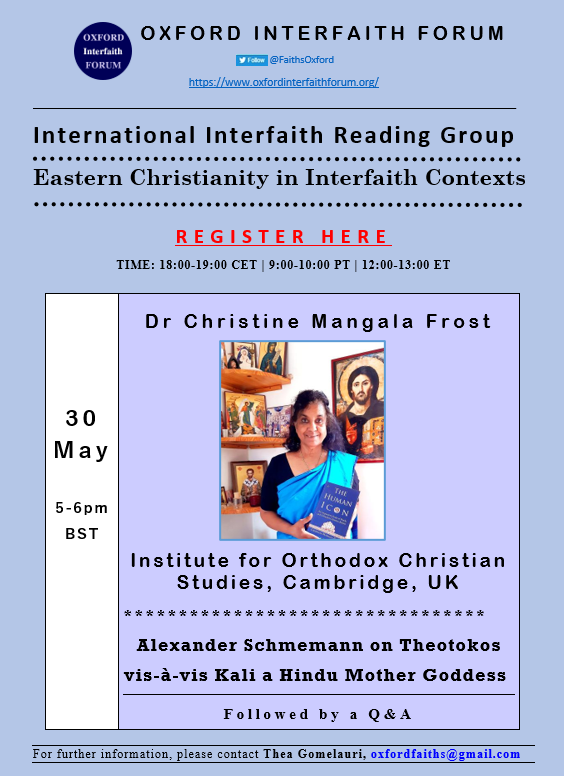
- Enoch and the Fallen Angels in the Ethiopian Tradition
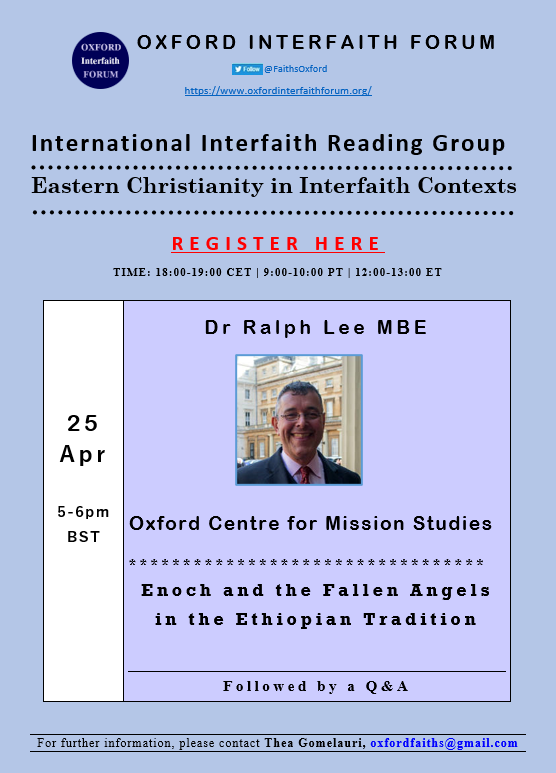
- Narsai on the Virgin Mary
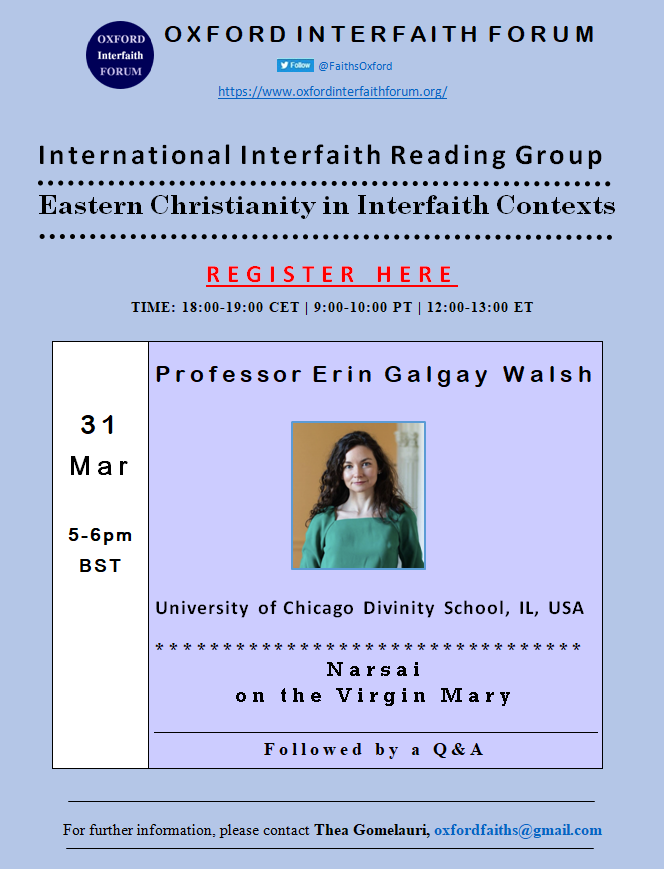
- An Anonymous Syriac Dialogue between Mary and the Angel
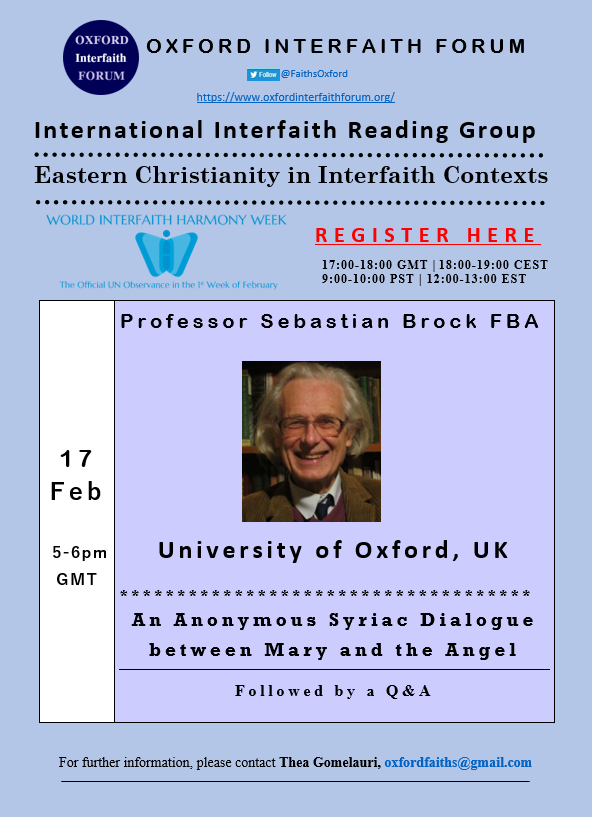
- Dadisho of Qatar: Questioning the Desert Fathers
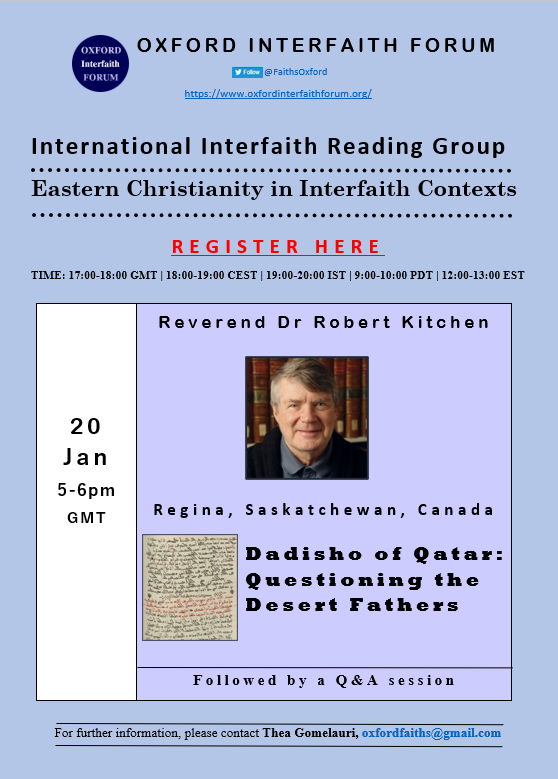
- George the Athonite on Matters of Faith and Rite, According to the Life of St George the Hagiorite
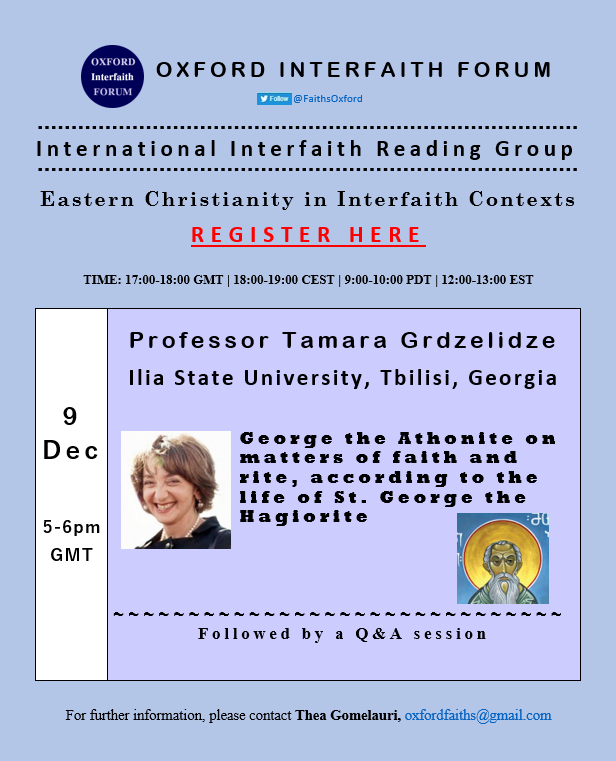
- Temple, Shekhinah and Prayer in Isaac of Nineveh’s III.VIII
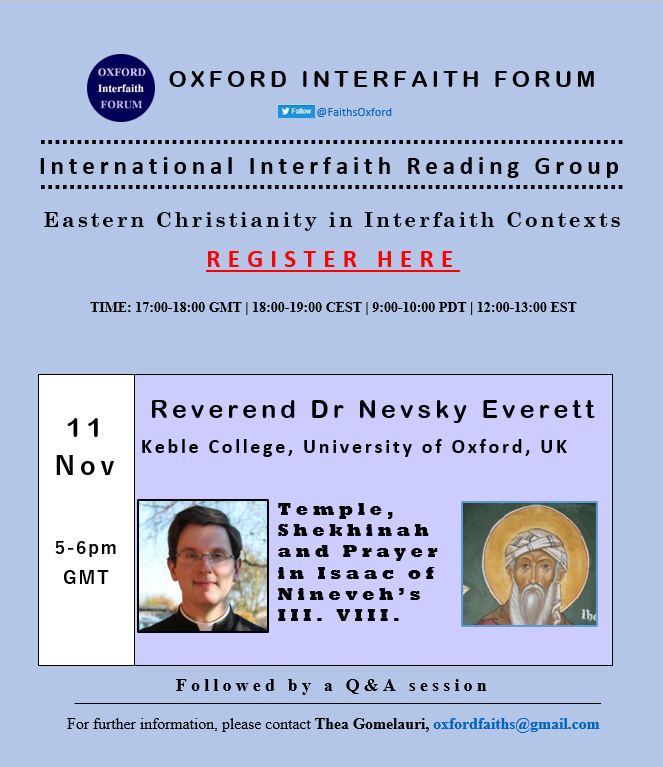
- St. Ephrem’s Commentary on Genesis Ch.3
